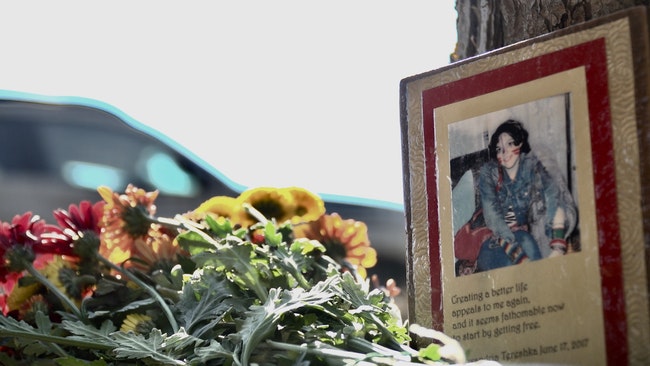
A roadside memorial for Alexandria Tereshka is along Oregon Highway 22, where she died in 2018. (Kate McMahon/Independent Lens (PBS)
Alexandria Tereshka needed help.
The 27-year-old from Dallas fought drug addictions that disrupted her life and earned her stays in jail.
The criminal justice system in Oregon struggles with people like Tereshka.
For her, whatever help there could have been came too late. She died by suicide on a west Salem highway in November 2018.
For Polk County District Attorney Aaron Felton, Tereshka was a reminder of the limits on Oregon’s criminal justice system.
In a new documentary, Felton candidly shares his views about the system. While he says Oregon is moving in the right direction with prison diversion programs, there is room to improve.
“The D.A’s Dilemma” was produced by Independent Lens (PBS) in association with Salem Reporter and is premiering on the news organization’s website.
Producer Kate McMahon interviewed Felton, legal experts and Tereshka’s relatives to explore how Oregon’s diversion programs function, what role a local prosecutor has in them, and how people become eligible to participate in them – or not – as in Tereshka’s case.
The documentary comes as Oregon prepares for a historic shift that decriminalizes possession of small amounts of hard drugs and thereby stripping away the criminal aspect of being a drug addict. Instead, they are moved into the state’s health care system.
The impacts of Measure 110, approved by Oregon voters in November 2020, so far are unclear.
(Video by Kate McMahon/Independent Lens – PBS)
TAKE OUR SURVEY
We want to hear from you. Click here to share your thoughts on this report and see how other readers responded.
RELATED REPORTING:
Oregon launches into expanded addiction treatment – with little evidence of what works
Rebellious and tormented, she was a ‘heartbreaking’ challenge for Oregon’s strained system









